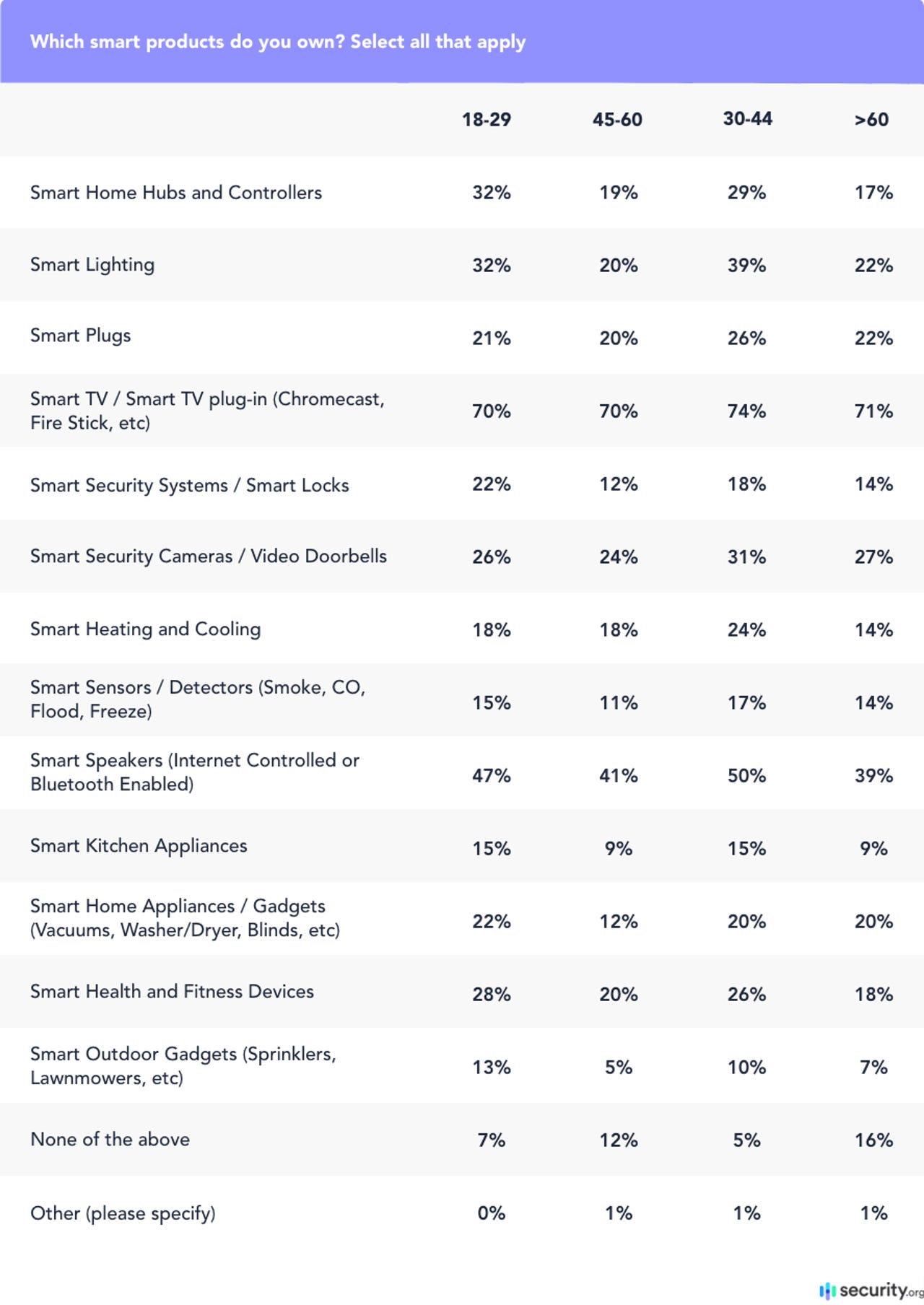80 million US households intend to purchase a new type of smart home device

Love it or hate it, smart home technology is here to stay. Security research company Security.org polled 606 US decision-makers of home electronics purchases in August 2020.
It wanted to find whether these consumers already own smart home technology, whether they are satisfied with it, and their plans to purchase or upgrade smart technology over the next 12 months.
Its Smart Home Technology Usage, Satisfaction and Purchase Intent: 2020 report showed that within the next 12 months over 80 million US households intend to purchase a new type of smart home device.
Sixty-four percent of respondents said they were planning to buy a new type of smart home technology within the next year, which equates to more than 80 million households in the US and significantly higher than industry forecasts.

Video entertainment makes up the most popular smart home devices owned across America.
US consumers own smart TVs or TV plug-ins such as Chromecast or Amazon Fire Stick (71%), and smart speakers (44%). Of the respondents that owned a smart home TV, 63% would recommend the device to a friend.
Millennials and Gen Xers are most likely to have smart home technology items in their homes.
They tend to own the most smart TV/TV plug-in (70%), smart speakers (47%), and smart health and fitness devices (28%). Over half of respondents plan to purchase smart TV/TV plug-in (52%) devices or smart lighting (32%) within the next six months.
Not everyone wants to buy and use smart home technology. Many people find it unnecessary, irrelevant, and too expensive. Others had privacy concerns given the insecurity of many IoT devices and the commonality of security breaches.
Only one in ten (10%) said that they owned no smart products, and less than one in ten (9%) owned smart home gadgets.
Of the households that weren't interested in owning or using smart home technology, most said it wasn't needed or relevant, while others noted its high cost and privacy implications.
Of the smart products owned, respondents were satisfied (42%) or very satisfied (49%) with their smart TV/ smart TV plug-in. One in ten (10%) were unsatisfied or very unsatisfied with their smart outdoor gadgets.
Seven percent (7%) were unsatisfied or very unsatisfied with their smart kitchen appliances and 5% felt the same about smart home appliances/gadgets, smart lighting, and smart plugs.
Although smart home technology can make your life easier (I really enjoy reviewing robot vacuums and would not be without one now) not everyone feels the same way.
Privacy is still important, and device manufacturers need to demonstrate how trustworthy their devices actually are before smart technology becomes ubiquitous in our homes.